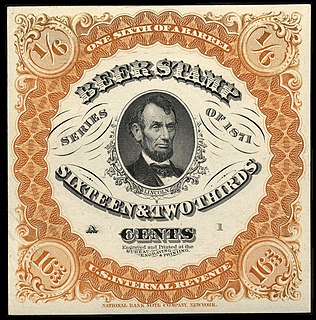
Tobacco smoking is the practice of burning tobacco and ingesting the smoke that is produced. The smoke may be inhaled, as is done with cigarettes, or simply released from the mouth, as is generally done with pipes and cigars. The practice is believed to have begun as early as 5000–3000 BC in Mesoamerica and South America. Tobacco was introduced to Eurasia in the late 17th century by European colonists, where it followed common trade routes. The practice encountered criticism from its first import into the Western world onwards but embedded itself in certain strata of a number of societies before becoming widespread upon the introduction of automated cigarette-rolling apparatus.

Smoking bans, or smoke-free laws, are public policies, including criminal laws and occupational safety and health regulations, that prohibit tobacco smoking in certain spaces. The spaces most commonly affected by smoking bans are indoor workplaces and buildings open to the public such as restaurants, bars, office buildings, schools, retail stores, hospitals, libraries, transport facilities, and government buildings, in addition to public transport vehicles such as aircraft, buses, watercraft, and trains. However, laws may also prohibit smoking in outdoor areas such as parks, beaches, pedestrian plazas, college and hospital campuses, and within a certain distance from the entrance to a building, and in some cases, private vehicles and multi-unit residences.
Excise tax in the United States is an indirect tax on listed items. Excise taxes can be and are made by federal, state and local governments and are not uniform throughout the United States. Certain goods, such as gasoline, diesel fuel, alcohol, and tobacco products, are taxed by multiple governments simultaneously. Some excise taxes are collected from the producer or retailer and not paid directly by the consumer, and as such often remain "hidden" in the price of a product or service, rather than being listed separately.
Action on Smoking and Health (ASH) is the name of a number of autonomous pressure groups (charities) in the anglosphere that seek to publicize the risks associated with tobacco smoking and campaign for greater restrictions on use and on cigarette and tobacco sales.

California Proposition 10 (1998) is an initiative state constitutional amendment that appeared in the 1998 California General Election. The official name of this amendment is “The Children and Families First Act.” This amendment put a $.50 tax on cigarettes, and even up to $1 on other tobacco products such as chewing tobacco and cigars. The revenue from this tax would go to funding early childhood education in California. The tax went into effect January 1, 1999.

An excise, or excise tax, is any duty on manufactured goods that is levied at the moment of manufacture rather than at sale. Excises are often associated with customs duties ; customs are levied on goods that become taxable items at the border, while excise is levied on goods that came into existence inland.

Drug policy of California refers to the policy on various classes and kinds of drugs in the U.S. state of California. Cannabis possession has been legalized with the Adult Use of Marijuana Act, passed in November 2016, with recreational sales starting January of the next year. With respect to many controlled substances, terms such as illegal and prohibited do not include their authorized possession or sale as laid out by applicable laws.

In the United States cigarettes are taxed at both the federal and state levels, in addition to any state and local sales taxes and local cigarette-specific taxes. Cigarette taxation has appeared throughout American history and is still a contested issue today.

Tobacco politics refers to the politics surrounding the use and distribution of tobacco.

Regulation of tobacco by the U.S. Food and Drug Administration began in 2009 with the passage of the Family Smoking Prevention and Tobacco Control Act by the United States Congress. With this statute, the Food and Drug Administration (FDA) was given the ability to regulate tobacco products.
The Massachusetts Tobacco Cessation and Prevention Program (MTCP) is an anti-tobacco program run by the Massachusetts Department of Public Health with the goal of decreasing tobacco prevalence in the state of Massachusetts. MTCP has four main components: preventing youth smoking, protecting against second hand smoke, assisting current smokers with quitting, and eliminating tobacco related disparities. Since the program began in, adult smoking rates have declined from 22.6% in 1993 to 16.1% in 2008, allowing Massachusetts the 4th lowest smoking rates in the country.

In Finland, the smoking figures are among the lowest in Europe. There are several factors that have influenced the decrease in the smoking prevalence, such as legislative actions, health promotion and national monitoring systems, policies aimed at reducing tobacco consumption through public awareness campaigns, advertising bans and increased taxation. Ministry of Social Affairs and Health has the leading role in tobacco control in Finland, and one of their main aims is have a more effective ban on sale of tobacco products to children and young people and to prevent sale of illegal tobacco products. Among the key elements in the successful tobacco policy is the traditional collaboration between the health authorities and non-governmental organisations, and intensive health promotion.

Proposition 29, the California Cancer Research Act, is a California ballot measure that was defeated by California voters at the statewide election on June 5, 2012.
Regulation of electronic cigarettes varies across countries and states, ranging from no regulation to banning them entirely. For instance, e-cigarettes were illegal in Japan, which forced the market to use heat-not-burn tobacco products for cigarette alternatives. Others have introduced strict restrictions and some have licensed devices as medicines such as in the UK. However, as of February 2018, there is no e-cigarette device that has been given a medical license that is commercially sold or available by prescription in the UK. As of 2015, around two thirds of major nations have regulated e-cigarettes in some way. Because of the potential relationship with tobacco laws and medical drug policies, e-cigarette legislation is being debated in many countries. The companies that make e-cigarettes have been pushing for laws that support their interests. In 2016 the US Department of Transportation banned the use of e-cigarettes on commercial flights. This regulation applies to all flights to and from the US. In 2018, the Royal College of Physicians asked that a balance is found in regulations over e-cigarettes that ensure product safety while encouraging smokers to use them instead of tobacco, as well as keep an eye on any effects contrary to the control agencies for tobacco.
Tobacco 21 is a national campaign aimed at raising the minimum legal age (MLA) for tobacco and nicotine sales in the United States to 21. As of 2019, the campaign is obsolete, as the minimum age to purchase tobacco products has been federally raised to 21. However, the Tobacco 21 campaign continues to be produced and funded by the Preventing Tobacco Addiction Foundation, a public health nonprofit organization established in 1996, and accepts donations. Tobacco 21 produces online content to promote anti-tobacco messages and helps communities around the United States raise the tobacco and nicotine sales age to 21.

Proposition 56 is a California ballot proposition that passed on the November 8, 2016 ballot. It increased the cigarette tax by $2.00 per pack, effective April 1, 2017, with equivalent increases on other tobacco products and electronic cigarettes containing nicotine. The bulk of new revenue is earmarked for Medi-Cal.

California state elections in 2018 were held on Tuesday, November 6, 2018, with the primary elections being held on June 5, 2018. Voters elected one member to the United States Senate, 53 members to the United States House of Representatives, all eight state constitutional offices, all four members to the Board of Equalization, 20 members to the California State Senate, and all 80 members to the California State Assembly, among other elected offices.

Colorado Proposition EE was a legislative referendum that appeared on ballots in Colorado in the November 2020 elections. It was a proposal to increase taxes on nicotine products and place a new tax on vaping products.










